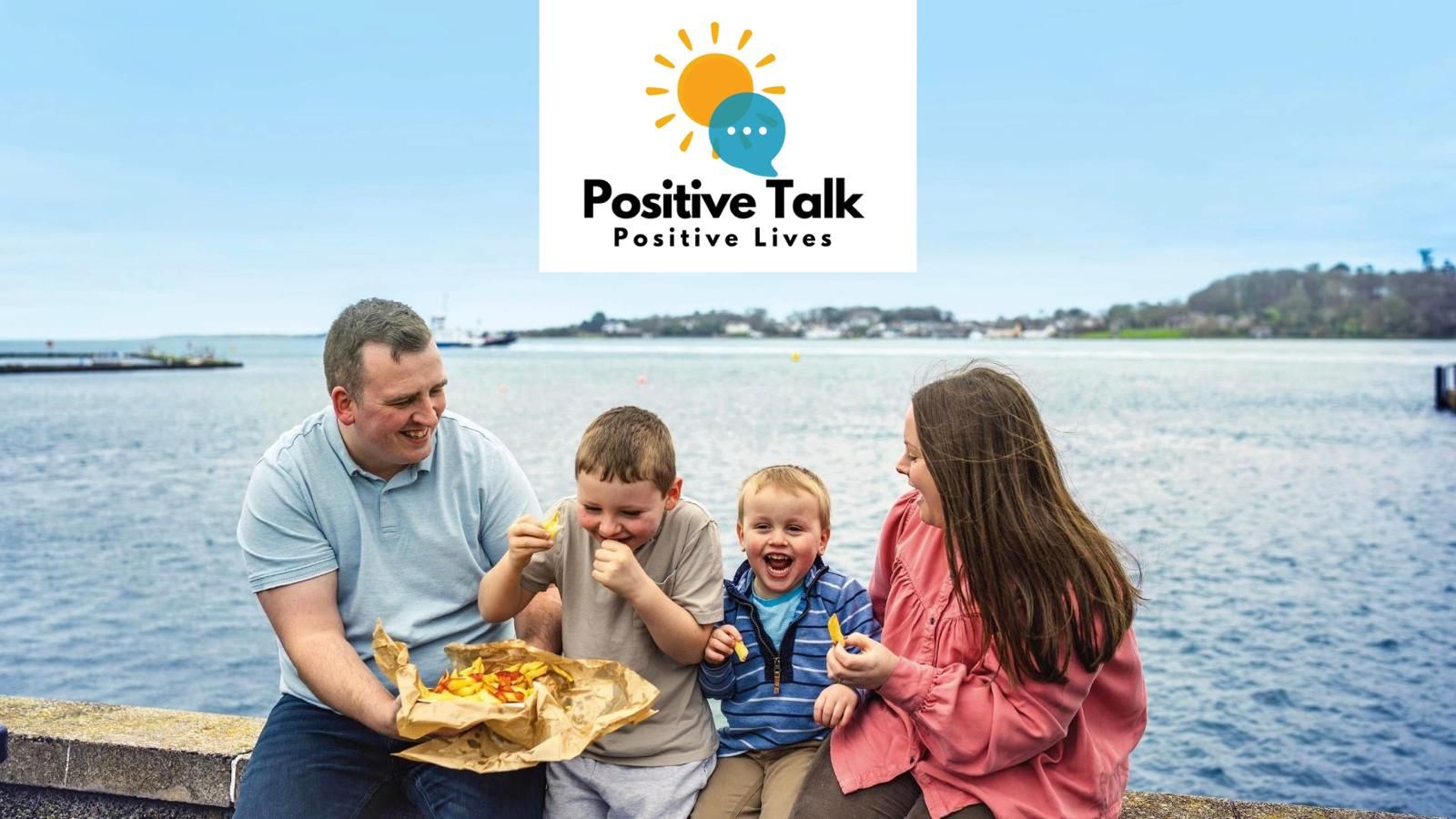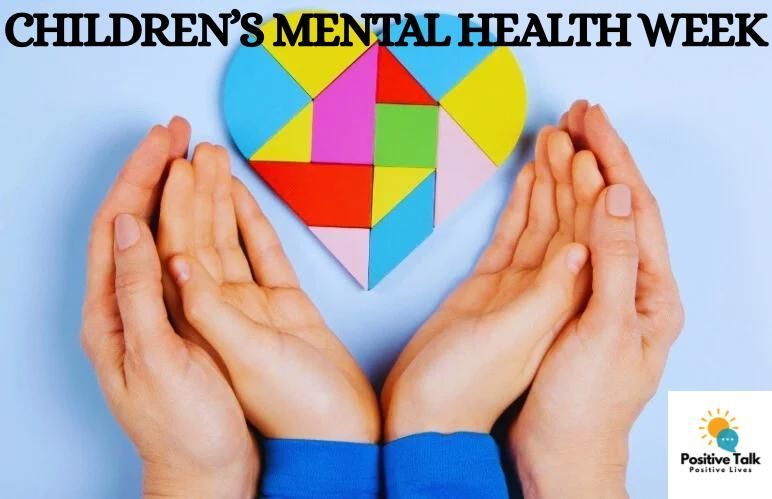Understanding Depression: A Guide by Positive Talk
If you are experiencing thoughts of suicide, self-harm or severe distress help is available 24/7:
Emergency Services 999 and 101
NHS Crisis Line 111 option 2
Samaritans (UK)116 123
Childline 0800 111
What is Depression?
Depression goes beyond just feeling down or upset for a few days. While it’s normal to have periods of sadness, depression involves a deep, lasting sense of unhappiness that persists for weeks or even months.
Some people mistakenly view depression as unimportant or not a legitimate health concern. However, it is a real condition. It’s not a weakness or something that can be overcome by sheer willpower alone. Depression may affect each person differently and can result in a variety of symptoms. These may include persistent sadness, hopelessness, or a loss of interest in activities once enjoyed. It’s also common to experience tearfulness or symptoms of anxiety alongside depression.
Physical symptoms might include constant fatigue, difficulty sleeping, changes in appetite or libido, or even unexplained aches and pains. Depression can range in severity. In milder cases, it may present as a persistent low mood, while severe cases can lead to feelings of despair or suicidal thoughts. Feeling stressed, anxious, or down during tough times is a normal part of life. However, when a low mood persists for an extended period, it could indicate depression rather than a temporary emotional dip. Depression may affect how people feel, think, and function on a day-to-day basis and may interfere with personal and professional life.
This guide explores what depression is, its impact, behavioural and psychological patterns, available support, and actionable strategies for recovery. Whether you're seeking treatment for depression, understanding symptoms, or ways to build resilience, this guide provides valuable insights.
What Triggers Depression?
Depression can sometimes be linked to specific events or circumstances, such as losing a loved one, job loss, or the arrival of a new baby.
There’s also evidence suggesting that individuals with a family history of depression may be more prone to it. However, depression can also appear without any clear cause.
Care and Support around Depression – Is this available?
The positive news is that with the right combination of treatment and support, many individuals with depression can recover fully.
Understanding the key symptoms of depression is the first step in recognising it so that you can take action.
Key Symptoms of Depression
- Continuous feelings of sadness or emptiness
- Loss of interest or pleasure in usual activities
- Fatigue and a lack of energy
- Difficulty concentrating or making decisions
- Feelings of worthlessness or excessive guilt
- Changes in appetite or weight (an increase or decrease)
- Disturbed sleep patterns like insomnia or excessive sleeping
- Thoughts of self-harm or suicide
- Developing a substance abuse disorder
The Impact of Depression
The impact of depression on day-to-day living is complex, affecting relationships, emotions, physical health and cognitive abilities.
Here’s some examples of how it may affect the above:
Physical Effects:
- Fatigue and low energy
- Unexplained aches and pains
- Digestive issues
- Weakened immune function
Emotional Effects:
- Persistent feelings of hopelessness or despair
- Emotional numbness or detachment
- Difficulty experiencing joy or connection
Social Effects:
- Withdrawal from friends and family
- Struggles to maintain relationships
- Decline in work performance and potential financial difficulties
Cognitive Effects:
- Brain fog, leading to poor memory and concentration
- Negative thought cycles that reinforce feelings of inadequacy
Depression doesn’t just affect our emotions; it can impact every aspect of our lives. Whether it’s the physical toll of fatigue, the emotional weight of hopelessness, or the strain it puts on relationships and work, depression can feel overwhelming. If you’re struggling with these impacts, Positive Talk is here to help. Our therapists can guide you in managing these challenges and finding relief.
Contact us today to learn more.
Behavioural and Psychological Patterns in Depression
Depression can cause changes both behaviourally and psychologically. For example, it can affect how people behave and how they feel emotionally. When a noticeable change occurs, it is beneficial to seek support at the earliest convivence. It is extremely helpful to have support in place whilst in a depressive state.
Behavioural Patterns:
Drinking: Alcohol is sometimes used as a coping mechanism which can worsen symptoms and lead to dependency/binge drinking. Alcohol is a depressant and slows down the central nervous system.
Irregular Sleep Patterns: Insomnia or hypersomnia are common; sleep changes can make other depression symptoms feel worse.
Mood Swings: Strong mood swings can make it hard to handle everyday tasks and get along with others.
Eating Disorders: Depression may trigger emotional eating, binge eating, or loss of appetite.
Self-Harm: Some people may self-harm to cope with the overwhelming emotions and this can occur in many ways. Self-harm is an expression of distress. Understanding signs and symptoms and understand how people may self-harm when in a state of depression.
Obsessive-Compulsive Disorders (OCD): Repetitive behaviours or intrusive thoughts can occur alongside depression.
Psychological Patterns:
Low Self-Esteem: Persistent feelings of inadequacy and unworthiness.
Negative Thinking: Negative thoughts that may reoccur making it hard to solve problems or feel hopeful about the future.
Irritability: When an individual is depressed, they may get frustrated or angry more often - both at themselves and or with others.
Suicidal Thoughts: If you are feeling hopeless and thinking about harming yourself, talk to someone right away. Reach out for help. You are not alone and support is available 24/7.
Depression and Relationships
Depression doesn’t just impact the individual experiencing it, it can deeply affect relationships with loved ones. Challenges such as social withdrawal, miscommunication, and emotional distance can leave relationships/families feeling isolated and misunderstood.
Supporting a Loved One with Depression:
- Listen empathetically without judgment.
- Encourage seeking professional help ASAP
- Stay connected through regular check-ins.
- Educate yourself about depression to provide informed support.
Couples or family therapy can help improve communication and understanding within strained relationships. At Positive Talk, we specialise in guiding families and couples through these challenges. Contact us today to explore how our compassionate therapists can support your journey toward stronger, healthier relationships.
Types of Support Available for Depression
The good news is that depression treatment options are varied and can be tailored to meet each individual’s unique needs:
1. Professional Support:
Therapy and Counselling:
- Cognitive Behavioural Therapy (CBT) to reframe your negative thought patterns.
- Interpersonal Therapy (IPT) to improve relationships.
- Person Centred Therapy (PCT) to help identify abilities and strengths to achieve a positive mindset whilst understanding and acknowledging direct thoughts and emotions
Medication:
- Antidepressants prescribed by healthcare professionals can regulate brain chemistry.
2. Lifestyle Changes:
- Regular physical activity
- A balanced diet to support your health
- Consistent sleep routines
Risk Factors and Causes of Depression
Understanding the causes of depression can help in prevention and treatment. Common factors include:
Biological: Hormonal imbalances, or chronic illnesses
Environmental: Stressful life events, trauma, or unstable home life
Psychological: Self-esteem, self-criticism. Repetitive negative thinking
Common Misconceptions About Depression
Addressing misunderstandings helps reduce stigma and promotes awareness:
- Depression is not a sign of weakness.
- Depression isn’t something you can simply “snap out of” through willpower alone.
- Seeking help is a courageous act of strength, not a sign of failure.
Recovery Strategies and Building Resilience
In addition to professional treatment self-help strategies for depression can support recovery:
1. Set Realistic Goals
2. Maintain a Routine
3. Stay Connected
Seeking Help
Taking the first step in finding professional support in relation to depression is crucial. Support from qualified professionals can make a significant difference in managing and overcoming symptoms and finding better ways of coping to support lifestyle changes.
Steps to Get Started:
- Schedule an appointment with a Counsellor/Therapist
- Explore therapy options that suit your needs.
- Speak to a trusted friend/family member
At Positive Talk, we offer compassionate and personalised therapy to support your recovery journey. Contact us to learn more about our services.
Final Thoughts
Depression is a complex but treatable condition. With the right combination of professional support, lifestyle changes, and resilience building strategies recovery is possible. If you are ready to take that first step, reach out today. Together we can create a path toward balance, joy, and wellbeing.
Article created by Sureya at Positive Talk










